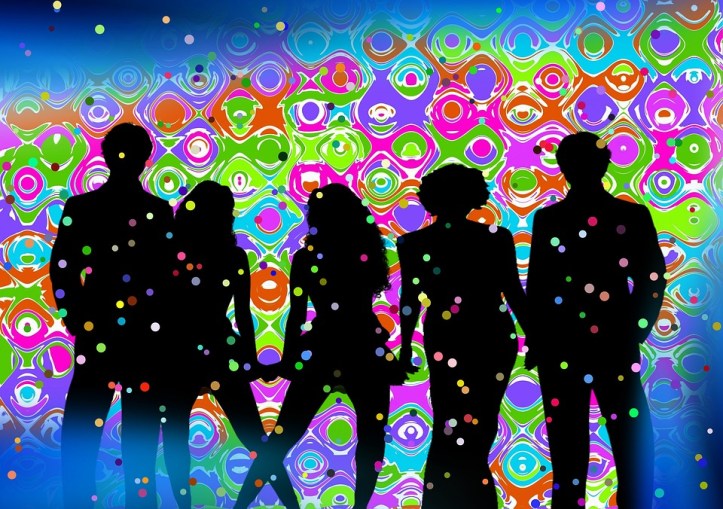
Sociability is not Extroversion
The girl who is the social butterfly and likes joining meetup group and parties must be an extrovert, right? And the guy who claims to not enjoy social events too much and rather stays at home must be an introvert, right?
If only extroversion and introversion were that simple. But they are not.
That is the trap most people fall into: Mistaking sociability with extroversion.
The truth is, true extroversion and introversion are about the main way you interact with the outer or the inner world.
To determine someone’s true extroversion or introversion, you need to study the cognitive functions. You cannot rely on their instinctual stacking which only shows you how willing they are to be sociable, or how much they value the quality of being sociable in themselves and others.
Asocial Extroverts and Sociable Introverts
You can be primarily focused on the outside world, but at the same time avoid social events and prefer hanging out with a significant other at home. Or on the other hand, you can be primarily focused on your internal world of feelings, or imagination, but be interested in social belonging and politics.
In short, you can be an asocial extrovert or a sociable introvert.
You may ask then, what truly determines someone’s degree of sociability, if not their degree of extroversion or introversion?
Instinctual Stacking determines Degree of Sociability
The degree of sociability boils down to your instinctual stacking, which describes the order of how you value the three universal instincts from the most to the least: Social, Sexual, Self-preservation.
Most “Sociable”
The most sociable (stereotypically “extroverted”) instinctual stackings are those who have the Social instinct as their first: So/Sx and So/Sp.
Least “Sociable”
The least sociable (stereotypically “introverted”) ones are those who have the Social instinct as their last: Sp/Sx and Sx/Sp.
“Social Ambiverts”
The most on/off with their sociability (stereotypically “ambiverted”) are those who have the Social instinct as their second: Sp/So and Sx/So.
Real Life Examples
Personally, as an So/Sx who’s a true introvert (IEI-Ni), I desire and feel more fulfilled by social interactions, but I can easily get drained by them. That’s why I often try to mostly get my “social fix” through online interactions, because those drain me way less, but they are also less fulfilling than those IRL.
Social Anxiety is Not Introversion
Another example would be the many extroverted (e.g ENTP/ILE) men I have come across who would claim they used to be “introverted” when they were younger: as in, scared of social situations, suffering from social anxiety.
Once they overcame their anxieties concerning social interactions, they suddenly emerged to be extroverted, “sociable” guys. Those guys were all Sx/Sp. It was the SO blind spot that made them feel like they were “introverted”.
They misconstrued shyness and social disinterest or anxiety as genuine introversion, which is a common mistake even Typology fans make.
Often do I hear someone say something along the lines of: “Are you sure introverts (e.g INTJ/ILI) can be Sx/So or So/Sp? Aren’t they/all introverts Sp/Sx?” Or on the other side of the coin, there is the trend of typing almost every Sx/So or Social first person as an extrovert by default: “He’s so sociable, he must be an extrovert”.
No, not all introverts are Sp/Sx, but the stereotypical introvert is.
No, not all extroverts are So/Sx or So/Sp, but the stereotypical extrovert is.
Type-Related Exceptions
Having said that, there are certain extroverts that will naturally be rather or less sociable regardless of their instinctual stacking.
Their degree of sociability is the least affected by their stacking or Socionics subtype. The factor here seems to be the strong grasp on Extroverted Feeling.
Often “Sociable” Jungian Types (despite stacking)
Whereas with the other types, their stacking, Enneagram, Tritype, or Socionics subtype can greatly influence how much they will come across as being sociable or not.
The exception to the “SO-last people are the least sociable” rule are ExFx, as well as Self-preservation Sixes, who in an attempt to feel more safe and secure often act more “sociable” than they truly are.

I would like you to elaborate on why instinctual stacking doesn’t affect the extroversion of SEE, ESE, IEE, and EIE and why you reference their extroverted feeling. ESE and EIE use extroverted feeling, but SEE and IEE use introverted feeling.
LikeLike
We use all our functions to a varying degrees. All ExFx types use Fe frequently, because it is one of their strongest functions. SEE and IEE do not “value” Fe, but they still use it frequently. Fi will come before Fe in terms of personal significance/importance, but they still use Fe. xEE individuals are often loud people, can be the center of a party or conversation, they easily take the emotional lead in conversations and situations. They do not always do so as Fe lead might, but they will be one of those people who do it more often and the most effortlessly.
My article is about how extroversion and sociability are not the same; but to be fair, I make an exception in that statement later on, suggesting that ExFx people will aways be “sociable” to an extent, even when they are SO last. That is simply because they are extroverts (who tend to require more mental stimulation from the outside world) and Ethicals, who are more focused on people. That combination, which in other words is Fe, drives them to be more engaged in “social” activities despite their stacking. But at the end of the day, just like xEE value Fi more, an ExFx individual who is SO last will value the other two instincts more on a personal level.
LikeLike
Greetings! Very useful advice within this article! It’s the little changes that will make the greatest changes. Thanks for sharing!
LikeLiked by 1 person